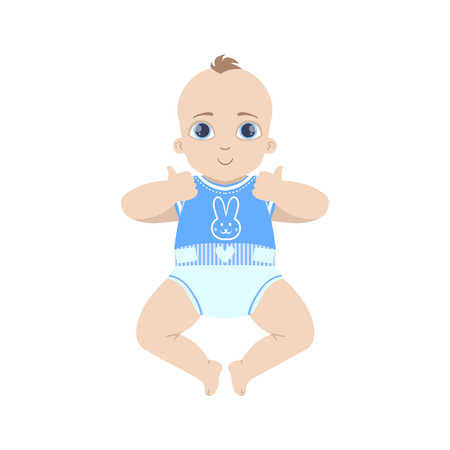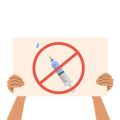Understanding Your Baby’s Skin Needs in India
As a mother raising my little one here in India, I quickly learned that our babies’ skin is far more sensitive than we might imagine. The unique combination of our tropical climate—think sweltering summers, unexpected monsoon humidity, and cooler winters—really impacts how delicate their skin can be. Unlike adults, a baby’s skin barrier is thinner and more prone to irritation from heat, sweat, and constant exposure to dust and pollution. If you’ve ever noticed your child developing little rashes or redness after a day out or even after wearing certain clothes, you’re not alone. Indian babies often deal with extra challenges due to frequent sweating, common allergens like pollen and dust mites, and the need for daily or even twice-daily washes—especially during those messy mealtimes or diaper changes! I remember being surprised at how some fabrics felt rougher on my son’s skin than others, and how certain detergents left behind residues that caused itching. This taught me firsthand how important it is to make thoughtful choices about what touches our children’s skin every day. In India, where frequent washing is a part of life and environmental triggers are everywhere, understanding these sensitivities is the first step toward choosing the right fabrics and detergents for your baby’s comfort and health.
2. Best Fabrics for Baby Clothes in the Indian Context
As a parent raising my little one in India, I quickly realized that choosing the right fabric isn’t just about softness—it’s about keeping your baby cool and comfortable through our hot summers, humid monsoons, and chilly winters. Here’s my hands-on guide to the best parent-approved fabrics that work wonders for Indian weather and sensitive baby skin.
Why Fabric Choice Matters in India
Our climate is diverse—what works in Delhi’s dry heat might not suit Chennai’s humidity. Babies sweat more easily and are prone to rashes. That’s why breathable, moisture-wicking, and hypoallergenic fabrics are non-negotiable for me.
Top Baby-Friendly Fabrics (With Real Parent Insights)
| Fabric | Why It’s Great for India | Where I Buy/Brand Examples |
|---|---|---|
| Pure Cotton | Lightweight, airy, absorbent; keeps baby cool even in peak summers. | Sourced from local markets like Sarojini Nagar (Delhi), FabIndia, FirstCry Essentials |
| Organic Muslin | Super soft, loosely woven for breathability—perfect for swaddles and nappies. | Kaarpas (online), Mothercare, Bumpadum |
| Bamboo Rayon | Naturally antibacterial, highly absorbent, gentle on eczema-prone skin. | Bamboo Bubby India, Little West Street |
Cotton: My Go-To Everyday Choice
I love pure cotton for daily wear—rompers, vests, and pyjamas. It’s easy to wash and stands up to repeated laundering with minimal wear. Plus, buying from local markets means you get budget-friendly options without compromising on quality.
Muslin: The Multi-Tasker
Nothing beats muslin for swaddling or layering during unpredictable weather. Its softness only increases with each wash—a blessing when your baby has sensitive skin or heat rashes.
Bamboo: For Sensitive Days
If my baby’s skin flares up or we’re traveling somewhere humid (think Goa in May!), bamboo blends are a lifesaver. They wick away sweat fast and feel luxuriously smooth.
Pro Tip:
Always check labels for “100% cotton” or “GOTS-certified organic muslin.” Avoid synthetic blends—they trap heat and can irritate delicate skin.

3. Choosing the Right Detergents: Gentle Yet Effective
When it comes to washing your baby’s clothes, choosing the right detergent is just as important as picking the softest fabric. In India, with our unique climate and dust, babies’ skin can be even more prone to irritation. As a new parent myself, I quickly realised that regular detergents—packed with strong fragrances and harsh chemicals—were causing tiny rashes on my little one’s arms and cheeks. That’s when I began my search for gentle, baby-safe alternatives.
What to Look For in Baby Detergents
The first thing I learned is to check the label for ‘fragrance-free’ or ‘mild fragrance.’ Babies are super sensitive to artificial scents, which can trigger allergies or eczema. Hypoallergenic detergents are a must; these formulas are designed to minimise the risk of skin reactions. I also look for “phosphate-free” and “no optical brighteners”—these ingredients may make clothes appear cleaner but can be harsh on delicate skin.
Popular Indian Brands for Baby Detergents
Over months of trial and error, I’ve found a few Indian brands that work wonders for sensitive skin. SebaMed Baby Laundry Detergent is a favourite among parents in my mothers’ group because it is dermatologist-tested and very gentle. Mother Sparsh Plant Powered Laundry Detergent, made from plant-based ingredients, removes tough stains without leaving behind any chemical residue. Another trusted option is , which is both affordable and effective for everyday use.
My Experience With Fragrance-Free & Hypoallergenic Options
I personally switched to a hypoallergenic, fragrance-free detergent after noticing redness on my baby’s neck folds. The difference was almost immediate—no more itchiness or rashes! Now, I always recommend to other parents: do a patch test on one piece of clothing before washing all baby items in a new detergent.
In summary, when shopping for your baby’s laundry needs in India, prioritise detergents that are free from dyes, strong perfumes, and unnecessary additives. Choose hypoallergenic options from well-reviewed Indian brands—and don’t hesitate to experiment until you find what keeps your baby’s skin happiest.
4. Traditional Indian Practices & Home Remedies
As a mother in India, I’ve often found myself leaning on age-old traditions when it comes to caring for my baby’s sensitive skin—especially with laundry. Generations before us have trusted simple, natural ingredients like reetha (soap nuts), shikakai, and homemade washing solutions for their gentle yet effective cleaning properties. But how do these time-tested methods stack up against modern detergents when it comes to our little one’s delicate skin?
Reetha (Soap Nuts): Nature’s Own Detergent
Many Indian families still use reetha as a natural alternative to chemical detergents. My grandmother swears by soaking a handful of soap nuts overnight and using the soapy water to wash baby clothes. The saponins in reetha create mild suds that clean fabric without harsh chemicals—a big plus for babies prone to rashes or eczema.
| Traditional Ingredient | How It’s Used | Benefits | Possible Concerns |
|---|---|---|---|
| Reetha (Soap Nuts) | Soaked and the liquid used as detergent | Mild, chemical-free, biodegradable | May not remove heavy stains; possible nut allergies |
| Baking Soda & Lemon | Added to wash cycle for whitening and deodorising | Naturally removes odours, softens fabrics | Lemon can irritate if not rinsed well; may fade colours over time |
| Shikakai | Mild cleanser, sometimes mixed with reetha | Suits sensitive skin; gentle cleaning | Less effective on stubborn stains |
The Personal Experience: What Worked for My Baby?
I tried washing my son’s cotton nappies in reetha solution during his first months. The results were impressive—his skin stayed rash-free, and the clothes felt naturally soft. However, I did notice that tough stains from food or spit-up sometimes needed an extra soak or a tiny bit of gentle commercial detergent.
A Word of Caution: Not All Natural is Gentle Enough!
While these traditional solutions are lovely for everyday cleaning, some babies may react even to natural ingredients if they aren’t rinsed thoroughly. For example, once I left a batch of lemon-washed clothes in direct sun for too long, and my baby developed a slight irritation around his neck due to leftover lemon residue. Always do a patch test or rinse extra carefully when trying new home remedies.
In summary, blending traditional wisdom with careful observation can help you find the safest way to keep your baby’s clothes clean and their skin happy. Trust your instincts—and don’t be afraid to experiment within reason!
5. Tips for Washing and Caring for Baby Clothes
As a parent in India, caring for your baby’s clothes is about more than just cleanliness – it’s about protecting their delicate skin from irritation and allergies. Over the years, I’ve tried everything from traditional hand-washing to modern machines, learning what truly works in our Indian context.
Hand-Wash or Machine-Wash: Which is Better?
Many Indian families still trust hand-washing, especially for newborns. It lets you gently scrub away stains without being too harsh on soft cotton or muslin fabrics. If you use a washing machine, choose the gentlest cycle and always wash baby clothes separately from adult laundry to avoid detergent build-up or transfer of germs.
The Magic of Sun Drying
Our abundant Indian sunlight is one of the best natural disinfectants. Sun-drying not only keeps clothes smelling fresh but also helps kill lingering germs without chemical exposure. Spread baby garments inside out on a clean line under the sun, but avoid leaving them out too long to prevent fading, especially with delicate prints and whites.
Avoiding Common Pitfalls
- No Harsh Chemicals: Skip fabric softeners and strong stain removers – they often leave residues that can irritate sensitive baby skin.
- Rinse Thoroughly: Whether by hand or machine, ensure an extra rinse cycle. In our hard water regions, this step is crucial to remove all detergent traces.
- Pre-treat Stains Naturally: Breast milk, dal spills, or fruit stains? Try soaking in mild soap solution or using a paste of baking soda before washing.
Everyday Parent-Tested Advice
I always keep a separate bucket and gentle brush just for my baby’s clothes to avoid cross-contamination. Sorting light and dark clothes prevents colour run – a lesson I learned the hard way with a kurta set! And most importantly, never skip checking garment labels; Indian brands like FirstCry or Mom & Me often have specific washing instructions suited to local fabrics.
With these tips rooted in daily Indian life, you’ll keep your little one’s clothes soft, safe, and looking new – while protecting their precious skin every step of the way.
6. Frequently Asked Questions from Indian Parents
After years of raising my little one here in India, I’ve had countless conversations with fellow parents about the best ways to care for our babies’ delicate skin. Here are some of the most common questions I hear, along with my tried-and-tested answers:
What’s the best way to remove stubborn stains from baby clothes?
Spills and stains are a part of daily life! I find that pre-soaking stained clothes in cold water with a gentle, fragrance-free detergent works wonders. For tough stains like dal or mango, make a paste using baking soda and water, gently rub it on the spot, and then wash as usual. Avoid harsh scrubbing—baby skin is sensitive, and so are their clothes!
Should I use fabric softener for my baby’s laundry?
I personally avoid commercial fabric softeners for my baby’s clothes because many contain chemicals that can irritate sensitive skin. Instead, I use a splash of white vinegar in the rinse cycle—it naturally softens fabrics and removes detergent residues without leaving any strong smell. This is an old tip passed down from my mother-in-law!
How do I deal with hard water when washing baby clothes?
Hard water is a reality in many parts of India, including my own home in Bangalore. It can leave clothes feeling stiff and cause detergents to lather less. My solution is to use detergents specifically formulated for hard water (look for “hard water friendly” on the pack). Adding half a cup of white vinegar during rinsing helps break down mineral build-up too. If you’re noticing residue or dullness, try double-rinsing your baby’s clothes.
Are traditional Indian fabrics like cotton mulmul really better for babies?
Absolutely! Mulmul cotton is a staple in our family wardrobe. It’s lightweight, highly breathable, and perfectly suited to our hot climate. Other regional options like organic muslin or khadi also work beautifully. Stick to natural fibres wherever possible—they’re gentle on baby’s skin and easy to keep clean.
Which detergent brands do you personally trust?
I’ve had good results with brands like Himalaya Gentle Baby Laundry Wash and Mamaearth Plant-Based Detergent—both are mild, effective, and widely available across India. Always check for “hypoallergenic” or “dermatologist tested” labels when choosing something new.
My Real-Life Tip:
No matter what products you choose, always do a patch test if you’re trying something new—babies’ skin can be unpredictable! Keep it simple and trust your instincts—you know what works best for your family.


